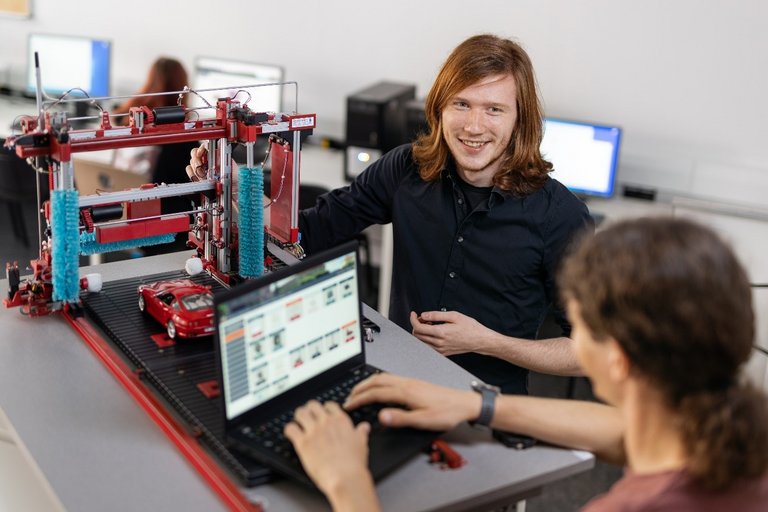Conducting complex laboratory experiments from the comfort of your own home - at any time of the day or night and across institutional and spatial boundaries: this is the goal of projects to further develop digitally supported university teaching at TU Ilmenau. Together with Professor Alexander Kist from the University of Southern Queensland in Toowoomba, scientists at the university have now tested the hybrid take-home lab for the first time as part of the GOLDi Remote Lab for use in teaching in Australia.
![[Translate to English:] TU Ilmenau](/unionline/fileadmin/_processed_/8/b/csm_lab_4d2f92320b.jpg)
So-called online labs, which digitally support teaching at universities, have not only found their way into universities since the Corona era. They are just as powerful as on-site technical facilities, but much more flexible: learning content in the form of interactive simulations and video recordings can be accessed remotely from anywhere, and students can decide for themselves when to access it according to their individual work rhythm and level of knowledge. However, hands-on experimentation and the associated "haptic learning" is not available in traditional online labs.
That's why hybrid take-home labs are designed to enable students of mathematics, computer science, natural sciences and engineering, so-called STEM subjects, to conduct complex "hands-on" experiments from home using their own control units via the Internet by remotely accessing hardware in a lab. They were developed as part of a Fellow project of the Stifterverband in the interactive hybrid online laboratory GOLDi ("Grid of Online Lab Devices Ilmenau"), which has already been used for more than ten years for courses, practical work and online demonstrations at the TU Ilmenau. Currently, they are being further developed in an impulse project of Thuringia's eTeach network to make them usable for interdisciplinary, remote-based hybrid teaching.
Control complex manual goods online
In order to test the concept across national and disciplinary boundaries, Prof. Alexander Kist from the University of Southern Queensland in Toowoomba has been working as a visiting scientist in the GOLDi Remote Lab for the past two months. As a professor of Telecommunications in the School of Engineering, he teaches, among other things, the use of programmable logic controllers (PLCs) in industrial environments. Together with Dr. Karsten Henke and Johannes Nau from the Integrated Communication Systems Group, he prepared the first Take-Home Lab cases so that he can use them for a first test run in teaching at his home university.
Most of our students have their own PLC at home, with which they can independently control interactive objects or interact with software applications - but no direct access to experimental environments with complex electromechanical hardware, as is the case in Ilmenau
,explains Professor Kist. This is where the two universities complement each other ideally:
In our GOLDi Remote Lab, we have a number of such electromechanical hardware models as a 3-axis gantry, an elevator or a high-bay warehouse," says Dr. Henke. "With the Take-Home Lab cases we have prepared, we can provide the students in Australia with an interface unit to which they can connect their own PLC and thus control complex hardware models at our university from Australia via the Internet.
Cross-Reality Labs for Learning and Working 4.0
However, the Take-Home Lab cases are not limited to PLC applications, but can be flexibly operated with any electronics. The suitcase, which Prof. Kist has taken with him to Australia to test the possibilities and limits of the hybrid Take-Home Lab concept together with the Ilmenau scientists over the next few weeks, will then be further developed in a project into flexibly combinable cross-reality labs in university teaching for Learning and Working 4.0. Then the suitcases will also be given to students so that they can experiment with their own hardware from home, explains Dr. Henke:
In this way, we want to expand the idea from purely virtual remote labs to hybrid online labs that offer haptic and audiovisual feedback on site.
Contact
Dr. Karsten Henke
Group for Integrated Communication Systems


